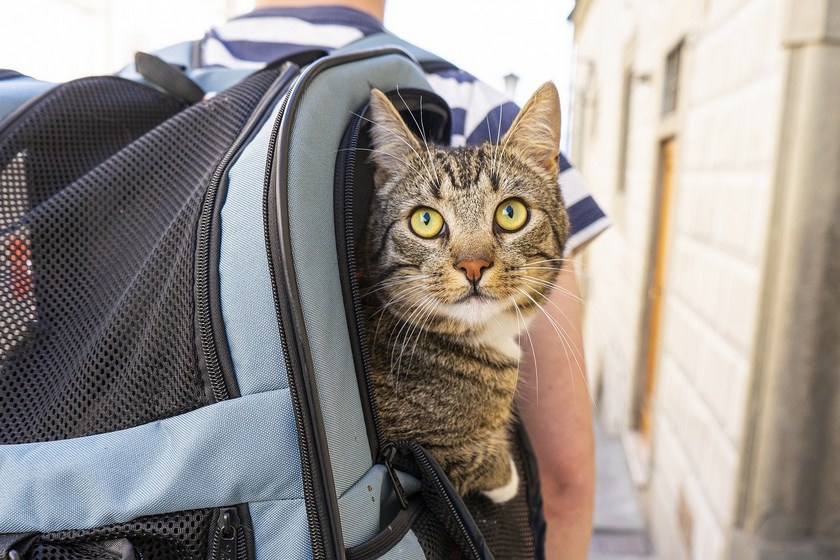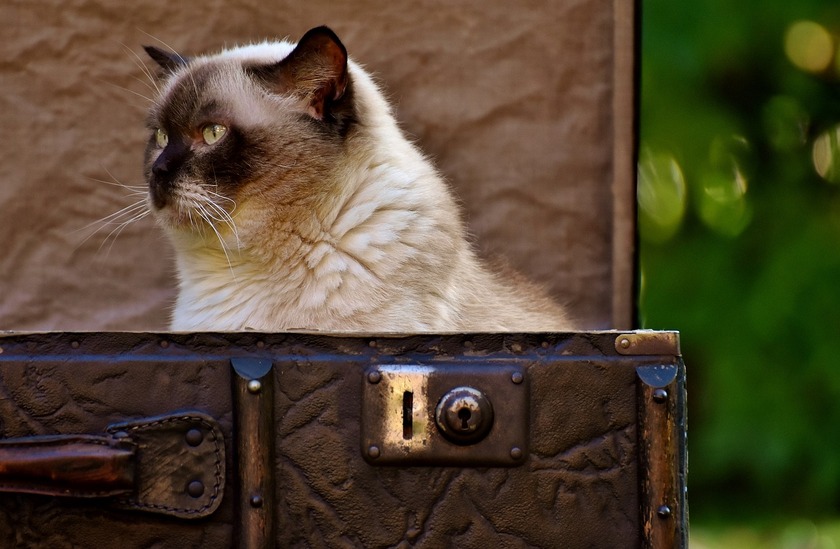Of all the road trips you’ll ever take in your lifetime, perhaps none will be as exciting and memorable as the one you take with both your cat and your dog. You’ll likely love the opportunity to spend a long drive with them, with none of your everyday worries in the way, and to unwind in destinations like a pet-friendly café or a cozy mountain cabin. However, road trips with your companion animals are far different from quick car rides to the vet or pet hotel. The longer the trip, and the more logistical elements involved, the more difficult it may be to manage your two favourite paw-sonalities. Proper preparation is key to ensuring a smooth and enjoyable journey for you and both your pets.
Wednesday, 24 March 2021

If you want to have a pleasant first road trip with your canine and feline, here are the preps you’ll need to undertake:
Before you hit the road with your dog and cat in tow, you have all you need for a road trip with dogs and cats. These include food, water, bedding, toys, and any medications they may need. Pack enough supplies to last the duration of the trip, including extra food and water in case of unexpected delays. It would also be good to bring at least one set of extra pet collars or harnesses just in case the ones your dog and cat usually use break when you’re on the road.
Quick replacements will help you keep them close to you, make them more visible to other people, and reduce their risk of getting lost in a foreign environment without their ID tags on them. Consider bringing Martingale collars for your dog and a Martingale harness for your cat, as both will guarantee gentle control without the risk of choking or escaping. In addition, bring portable pet supplies such as collapsible bowls for your dog’s and cat’s food and water. They make feeding on the go easier during rest stops. Don't forget to pack poop bags for cleaning up after your dog during breaks, and for your cat, a portable litter box and extra litter.
Aside from bringing essential pet supplies, make sure you plan your journey meticulously. Research pet-friendly rest stops along your route and ensure that they allow both dogs and cats. It’s best to map out rest stops with designated pet areas where your dog can relieve themselves and where you can safely dispose of your cat litter. You may also want to watch out for rest stops with nearby walking trails where your pets can safely explore and stretch their legs. When you bring both your dog and cat out of the car and to the rest stop, always keep them on a leash or harness to prevent them from wandering off or getting lost. Also have an idea of when you should keep your pets strapped into their seat belts or secured inside their carriers. Keep an eye on them to prevent escape attempts or adverse encounters with other animals.
Since this is your first road trip with your dog and cat, you should put in the time and effort to get them accustomed to long car travel. You can do this by gradually introducing them to short rides well ahead of your trip. Start with short trips around the block and gradually increase the duration as they become more comfortable being in the car.
Now that you’re planning for the trip, bake in some crate training for both pets for added safety during the journey. Have your pets stay inside their crate while in the car, and if you’re using different crates than the ones your cat and dog use at home, allot extra time to get them familiar with their new enclosures.
Your pets’ safety should be a top priority during the trip. Use carriers or crates to secure them during the journey and to protect them from injury in case of sudden stops or accidents. Carriers will also keep your pets in their seats and keep them from being a distraction while you’re driving. Both your dog and your cat can also wear a pet seat belt each, which connects one end to a car’s seat belt and the other end to your pet’s harness. Adjust the length of your individual belts so that each pet can stand and lie down comfortably. If you plan to place your pets in separate carriers while inside the car, make sure they have ample space to stand and lie down. It’s also a good idea to place familiar bedding or toys inside the carriers to make them more inviting spaces for your cat and dog. Your cat, in particular, may benefit from a crate that can also fit a portable litter box.
Even if you’ll be on the road, maintain regular feeding and watering schedules for your pets to keep them healthy and hydrated. When it comes to feeding your dog, offer small, frequent meals and water breaks to prevent digestive upset or dehydration.
Also avoid feeding your them large meals immediately before or during car rides to reduce their risk of motion sickness. For your cat, provide them access to fresh water at all times during the journey to prevent dehydration. Small meals or treats during rest stops should also keep them comfortable and satisfied throughout the trip.
It’s true that a trip with both your cat and dog will be a huge challenge compared to driving off alone or with just one of them in your company. But few things will be able to replace the feeling of being a complete fur family out on the open road.
These tips should make it easier to execute your plans and have you and your canine and feline ready for the road trip of a lifetime!















